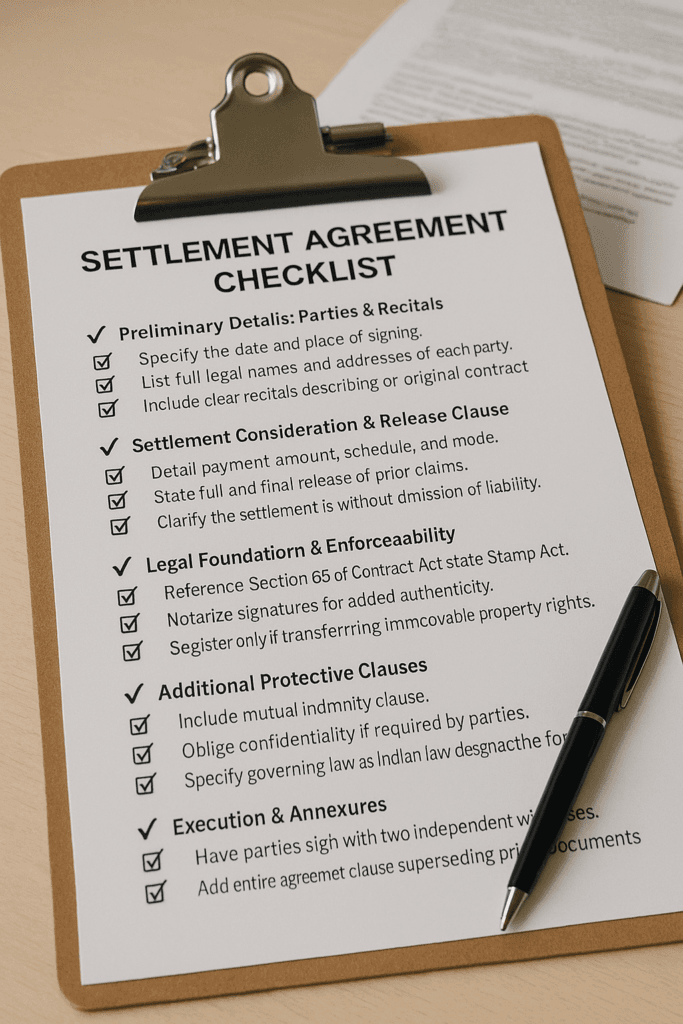
1. Preliminary Details: Parties & Recitals
1.1 Date & Venue
- ✔ Specify the exact date and place of signing.
1.2 Parties’ Identification - ✔ List full legal names, addresses, and capacities of each party.
1.3 Background Recitals - ✔ Include clear recitals describing the original contract and dispute in plain language.
2. Settlement Consideration & Release Clause
2.1 Consideration Terms
- ✔ Detail payment amount, currency, schedule, and mode (e.g., bank transfer).
2.2 Release & Waiver of Claims - ✔ State “full and final release” of all past, present, and future claims under the original agreement.
2.3 No Admission of Liability - ✔ Clarify the settlement occurs without admission of wrongdoing to protect against future assertions.
3. Legal Foundation & Enforceability
3.1 Accord & Satisfaction (Section 63)
- ✔ Reference Section 63: “An accord and satisfaction discharges the original liability once performed.”
3.2 Novation (Section 62) - ✔ Cite Section 62: “If parties substitute a new contract, the original need not be performed.”
4. Formalities: Stamp Duty, Notarization & Registration
4.1 Stamp Duty Compliance
- ✔ Use proper stamp paper or e-stamp as per your state’s Stamp Act.
4.2 Optional Notarization - ✔ Notarize signatures for extra proof of authenticity (not mandatory).
4.3 Registration (When Required) - ✔ Register only if the settlement transfers immovable property rights.
5. Additional Protective Clauses
5.1 Mutual Indemnity
- ✔ Include an indemnity clause to cover third-party claims.
5.2 Confidentiality - ✔ Oblige confidentiality of settlement terms, unless law mandates disclosure.
5.3 Governing Law & Jurisdiction - ✔ Specify governing law (Indian law) and exclusive forum (courts or arbitration).
6. Execution & Annexures
6.1 Signatures & Witnesses
- ✔ Have parties sign with dates and two independent witnesses.
6.2 Entire Agreement Clause - ✔ State this document supersedes all prior agreements in writing.
6.3 Schedules & Annexures - ✔ Attach key documents (original contract excerpts, payment proofs) as annexures.
Conclusion:
By following this Settlement Agreement Checklist, you guarantee enforceability and prevent future disputes in India. Draft with confidence—your settlements will stand strong under Sections 62 and 63 of the Indian Contract Act.
Stuck somewhere?
Disturb us to help you out!
Harshaditya Kabra
+91-88277-53530
https://www.linkedin.com/in/ca-harshaditya/
https://accorgconsulting.com/
